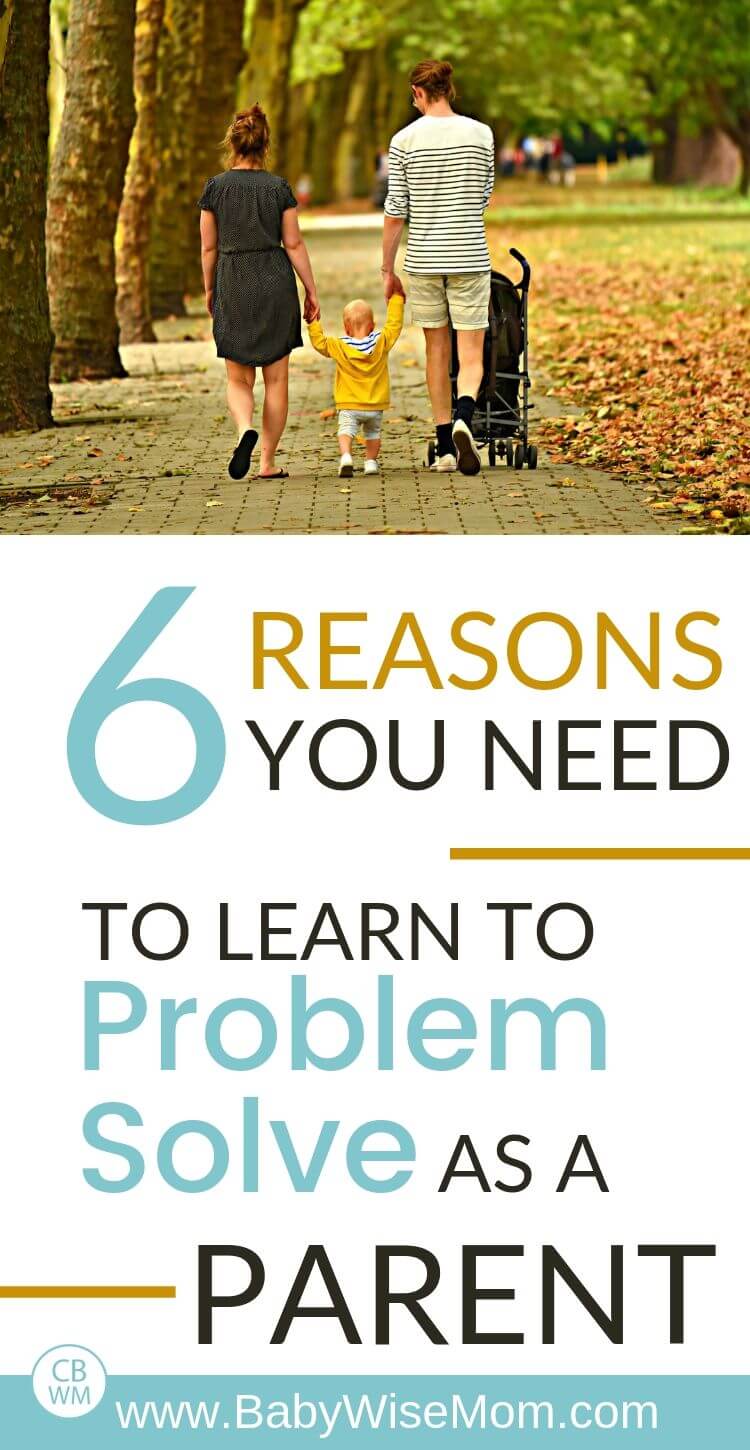As a parent, you need to learn how to think. You need to learn how to problem solve. You need to understand WHY and not just HOW.

Chapter Five in On Becoming Toddlerwise is my favorite chapter in perhaps all of the -wise books. Why? Because it focuses on Why vs. How . Ezzo says that “this chapter might well be the most important for many of our readers” (page 63). They label this chapter not as a “how-to” chapter but rather a “how-to-think” chapter.
Why is this important? Why do we need to have a how to think chapter? Why can’t we just have a list of “Do X when Y Happens” chapters? We are busy parents and we just want answers!
Think about it for a minute.
Done?
Do you have some ideas?
Post Contents
Why You Need to Be Able to Problem Solve as a Parent
Okay, now I will give you my personal list of reasons why you need to learn WHY and not just HOW:
Think For Yourself
Okay, this isn’t my personal reason. This is from Toddlerwise. “The less skillfully you think, the more others will think for you” (page 63).
There is a lot of knowledge available out there. There are a lot of differing opinions on how to raise children. No two systems are the same, obviously. If they were, there would be no need for both.
When you read several different theories, you run the risk of confusing yourself and creating inconsistencies in your parenting. However, reading different theories can give you a deep pool of knowledge to draw from.
You will be most successful at this if you understand your Beliefs and Goals (Toddlerwise) (found in this chapter) and can problem solve using those beliefs and goals (see Problem Solving Using Beliefs, Goals, Why, and How ). You must be able to discern what is right for you and your family. No book can tell you that. If you rely on a book, or several books, you will all be confused.
Children Are Individuals
I have four children. While they all have similarities with each other, no two have been the same. When I had my second child, I had to consciously tell myself that she was not my son. She didn’t have the same preferences he did. I couldn’t parent her the same way.
For example, he hated to be cold.
She hated to be hot.
I could not treat her as the same baby that he was.
My third and fourth are also, naturally, also individuals. I didn’t have to remind myself to treat them as an individuals since I had skillfully practiced that for over two years before adding a third.
No book can successfully tell you what to do with your individual child unless you write it yourself, and by then it will be after you have problem-solved and gotten to know your child very well.
You need to learn how to think so you can take the principles you agree with and want to apply to your family and turn them into reality for your individual child.

Books Are Short
No book can possibly cover every scenario you will ever encounter. You wouldn’t be willing to pay the price for that book–it would cost too much :).
If you know the “why” behind what you are doing, you can tailor things to your child as an individual. If you rely on “if X then Y” statements, then you will find yourself in a panic when X happens and the book didn’t cover it.
Children Are Human
Your child is a human, not a math equation. She has emotions and physical pain and a mind of her own.
Perhaps “If X then Y” is often true for your baby and for most babies. But along comes a moment when “If X is not Y”–it is actually B, or more accurately, some obscure letter you have never heard of before. Yes, this happens.
If you rely on a list of equations, you will often be applying a remedy that is not going to solve the problem. And, interesting to note, that as you progress in mathematics, the problems become abstract. I don’t have personal experience with this as an English major, but my husband, the engineer, tells me this is true. So even advanced math is not as simple as “If X then Y.”
Your child, the human, is more complex than any math problem.
Bumps Are Normal
Without a doubt, even the easiest baby will come to bumps in the road. As I said, babies are human. Humans are not perfect. Your baby is no more perfect at being a baby than you are at being a parent. If you have bad days, if you make mistakes, rest assured your baby will too.
Sometimes bumps are something predictable and have nothing to do with a mistake at all, like a growth spurt. Sometimes bumps might just be because your baby is having an off day for a reason you will never know.
The reasons for bumps are as varied as children are themselves.
No book can predict all bumps and therefore it cannot tell you what to do in every situation. You need to know the why behind what you are doing so you can access the situation and handle it appropriately.
You Need to Trust Yourself
You need to build your confidence so you can trust yourself. Because all babies are different, you need to be able to assess a situation and make a judgment call for your baby. You can’t run to someone else every time you have a problem.
You also can’t blindly follow advice from someone else when you have a problem. You need to be confident enough to trust your own assessment of a situation.
Conclusion
I hope I have effectively convinced you to learn how to think. If you haven’t done so, get your hands on this chapter, The Land of Good Reason, and read it. I think it is even valuable for a parent of a one month old. It will help you see the bigger picture of what you are doing and help you avoid becoming legalistic in your parenting.
RELATED POSTS
